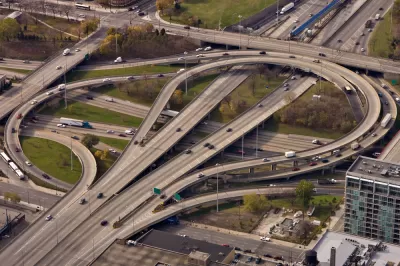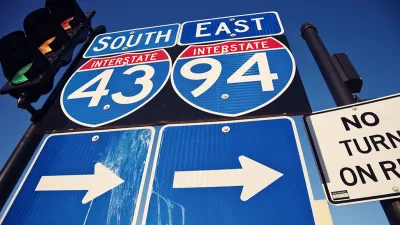A coalition of environmentalists, civil rights activists, and other community interests teamed up to successfully oppose a Milwaukee highway widening proposal. In an interview, one of the leading lawyers discusses his work.

Throughout the past year, a coalition of activists organized against a widening proposal for the I-94 through Milwaukee. The state recently abandoned the project. Here, Angie Schmitt interviews Dennis Grzezinski, an environmental attorney who led the charge. "In his most recent win, representing the Milwaukee chapters of the NAACP and the Sierra Club, Grzezinski took Wisconsin DOT to federal court over a $1.1 billion urban highway widening project."
According to Grzezinski, the money that's been poured into highway widening can exacerbate social problems like segregation by race and income. Billions of dollars for more highways, he says, allow "richer people to flee in the evening — concentrating poverty and social problems."
Grzezinski discusses how interest groups can form common cause against projects they oppose, bettering their chances in court. "It's really, really important to be involved as early in the project as possible, following the initial notice that they're looking at a project. It's really important to weigh in with comments. I found it really important to develop coalitions of organizations — to get the whole range of interested community players involved, in attending public hearings and public minutes."
FULL STORY: Meet the Lawyer Taking on Wisconsin’s Highway Lobby — And Winning

Alabama: Trump Terminates Settlements for Black Communities Harmed By Raw Sewage
Trump deemed the landmark civil rights agreement “illegal DEI and environmental justice policy.”

Planetizen Federal Action Tracker
A weekly monitor of how Trump’s orders and actions are impacting planners and planning in America.

Why Should We Subsidize Public Transportation?
Many public transit agencies face financial stress due to rising costs, declining fare revenue, and declining subsidies. Transit advocates must provide a strong business case for increasing public transit funding.

Understanding Road Diets
An explainer from Momentum highlights the advantages of reducing vehicle lanes in favor of more bike, transit, and pedestrian infrastructure.

New California Law Regulates Warehouse Pollution
A new law tightens building and emissions regulations for large distribution warehouses to mitigate air pollution and traffic in surrounding communities.

Phoenix Announces Opening Date for Light Rail Extension
The South Central extension will connect South Phoenix to downtown and other major hubs starting on June 7.
Urban Design for Planners 1: Software Tools
This six-course series explores essential urban design concepts using open source software and equips planners with the tools they need to participate fully in the urban design process.
Planning for Universal Design
Learn the tools for implementing Universal Design in planning regulations.
Caltrans
Smith Gee Studio
Institute for Housing and Urban Development Studies (IHS)
City of Grandview
Harvard GSD Executive Education
Toledo-Lucas County Plan Commissions
Salt Lake City
NYU Wagner Graduate School of Public Service




























